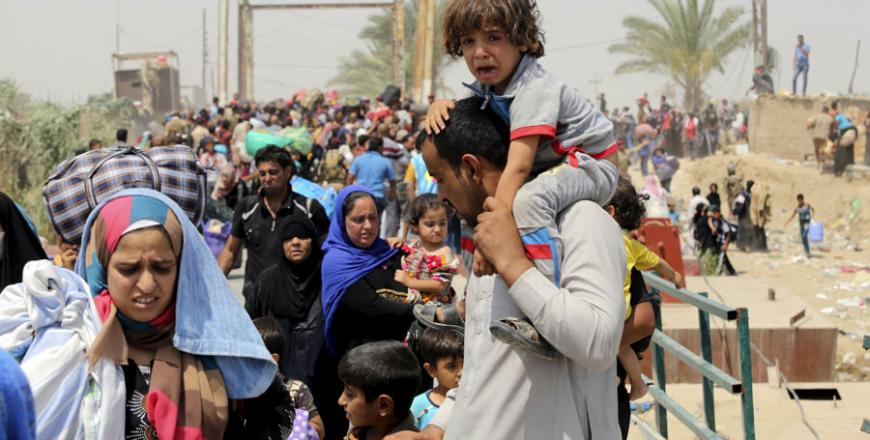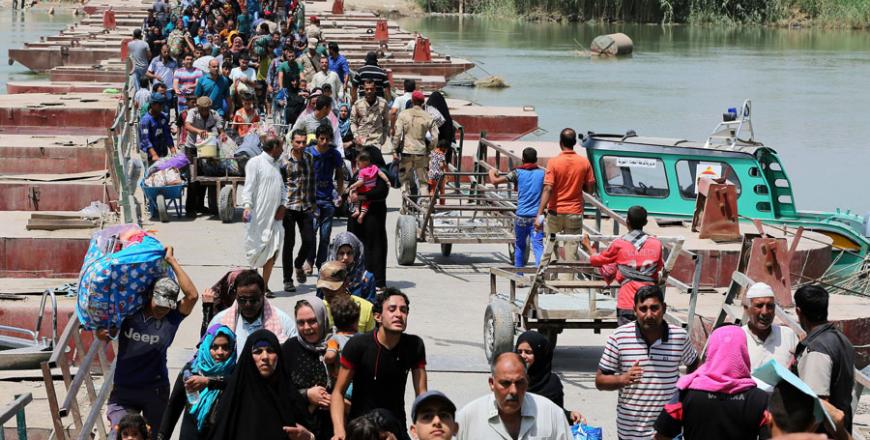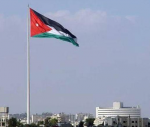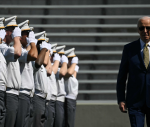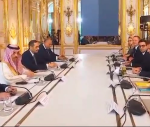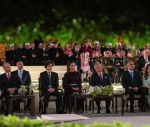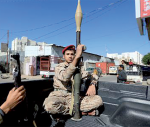You are here
Iraqis abandon US-supplied equipment in Ramadi
By AP - May 19,2015 - Last updated at May 19,2015
WASHINGTON — Iraqi troops abandoned dozens of US military vehicles, including tanks, armoured personnel carriers and artillery pieces when they fled Daesh fighters in Ramadi on Sunday, the Pentagon said Tuesday.
A Pentagon spokesman, Col. Steve Warren, estimated that a half dozen tanks were abandoned, a similar number of artillery pieces, a larger number of armoured personnel carriers and about 100 wheeled vehicles like Humvees. He said some of the vehicles were in working condition; others were not because they had not been moved for months.
This repeats a pattern in which defeated Iraq security forces have, over the past year, left behind US-supplied military equipment, prompting the US to destroy them in subsequent air strikes against Daesh forces.
Asked whether the Iraqis should have destroyed the vehicles before abandoning the city in order to keep them from enhancing Daesh’s army, Warren said: “Certainly preferable if they had been destroyed; in this case they were not.”
Warren also said that while the US is confident that Ramadi will be retaken by Iraq, “it will be difficult”.
The fall of Ramadi has prompted some to question the viability of the Obama administration’s approach in Iraq, which is a blend of retraining and rebuilding the Iraqi army, prodding Baghdad to reconcile with the nation’s Sunnis, and bombing Daesh targets from the air without committing American ground combat troops.
“The president’s plan isn’t working. It’s time for him to come up with overarching strategy to defeat the ongoing terrorist threat,” House Speaker John Boehner said.
White House spokesman Josh Earnest said President Barack Obama has always been open to suggestions for improving the US approach in Iraq.
“It’s something that he’s talking about with his national security team just about every day, including today,” Earnest said.
Derek Harvey, a retired army colonel and former Defence Intelligence Agency officer who served multiple tours in Iraq, says that while the extremist group has many problems and weaknesses, it is “not losing” in the face of ineffective Sunni Arab opposition.
“They are adaptive and they remain well armed and well resourced,” Harvey said of the militants. “The different lines of operation by the US coalition remain disjointed, poorly resourced and lack an effective operational framework, in my view.”
One alternative for the Obama administration would be a containment strategy — trying to fence in the conflict rather than push the Daesh group out of Iraq. That might include a combination of air strikes and US special operations raids to limit the group’s reach. In fact, a Delta Force raid in Syria on Friday killed a Daesh leader known as Abu Sayyaf who US officials said oversaw the group’s oil and gas operations, a major source of funding.
Officials have said containment might become an option but is not under active discussion now.
Gen. Martin Dempsey, the top US military officer, issued a written statement Monday that suggested Ramadi will trigger no change in the US approach.
“Setbacks are regrettable but not uncommon in warfare,” Dempsey said. “Much effort will now be required to reclaim the city.”
It seems highly unlikely that Obama would take the more dramatic route of sending ground combat forces into Iraq to rescue the situation in Ramadi or elsewhere. A White House spokesman, Eric Shultz, said Monday the US will continue its support through air strikes, advisers and trainers.
The administration has said repeatedly that it does not believe Iraq can be stabilised for the long term unless Iraqis do the ground fighting.
Related Articles
WASHINGTON — The Daesh group’s takeover of the Iraqi provincial capital Ramadi has prompted criticism from Defence Secretary Ash Carter and
OCCUPIED JERUSALEM — US President Barack Obama is weighing expanding the number of training sites for Iraqi forces as a way to bolster the b
Iraqi forces said they fought off an overnight attack by Daesh militants near the city of Ramadi, which the insurgents overran at the weekend in the most significant setback for the government in a year.


